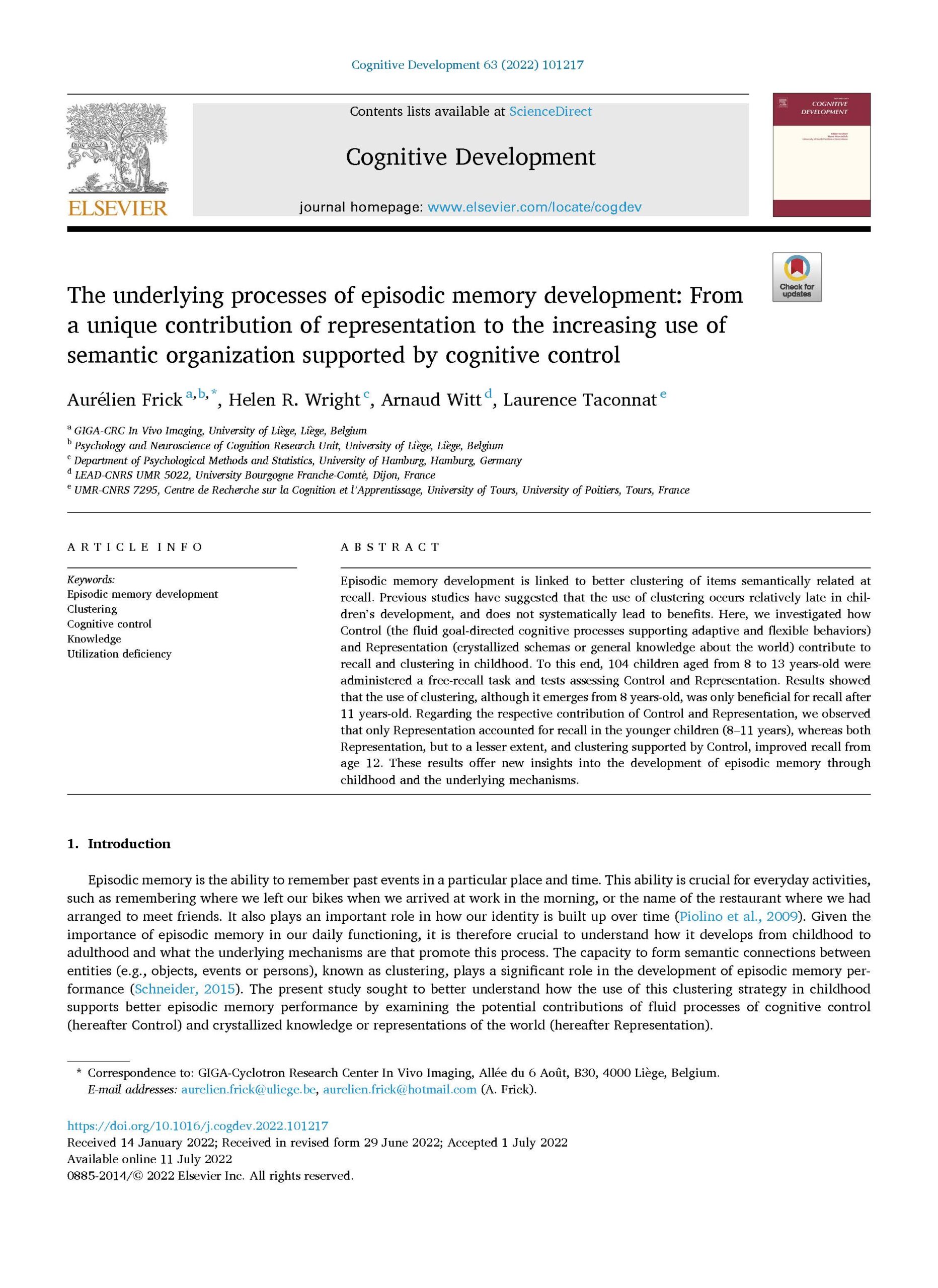Episodic memory development is linked to better clustering of items semantically related at recall. Previous studies have suggested that the use of clustering occurs relatively late in children’s development, and does not systematically lead to benefits. Here, we investigated how Control (the fluid goal-directed cognitive processes supporting adaptive and flexible behaviors) and Representation (crystallized schemas or general knowledge about the world) contribute to recall and clustering in childhood. To this end, 104 children aged from 8 to 13 years-old were administered a free-recall task and tests assessing Control and Representation. Results showed that the use of clustering, although it emerges from 8 years-old, was only beneficial for recall after 11 years-old. Regarding the respective contribution of Control and Representation, we observed that only Representation accounted for recall in the younger children (8–11 years), whereas both Representation, but to a lesser extent, and clustering supported by Control, improved recall from age 12. These results offer new insights into the development of episodic memory through childhood and the underlying mechanisms.
The underlying processes of episodic memory development: From a unique contribution of representation to the increasing use of semantic organization supported by cognitive control
